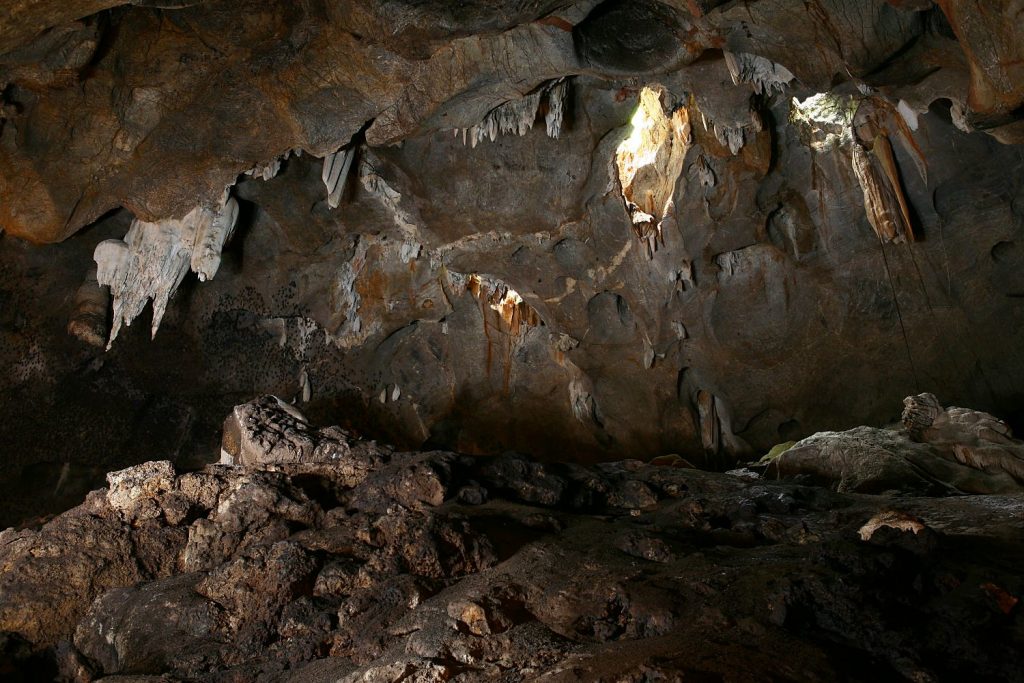Nothing is permanent, so everything is precious. Here’s a selection of some happenings—fleeting or otherwise—in the Buddhist world this week.
Monk Rescued from Cave after Being Trapped for Days
Thai rescue workers said on Wednesday that they had freed a Buddhist monk trapped inside a flooded cave in Thailand’s Phitsanulok province, after he had ventured inside the cave to meditate. According to CNN, 46-year-old Phra Ajarn Manas was on a pilgrimage from another province and entered the Phra Sai Ngam cave on Saturday. An unseasonal rainstorm struck the area on Sunday and continued through Tuesday, flooding parts of the cave while Manas was inside, the local rescue unit said on its Facebook page. He was finally freed on Wednesday. Seventeen divers participated in the effort to find the monk. A similar rescue story made global headlines in 2018 with the rescue of 12 Thai boys and their soccer coach from a flooded cave in the northern Thai town of Chiang Rai. The coach and several of the boys ordained as novice Buddhist monks after their high-profile rescue.
Tibetan Bikers Ride in Campaign to Bestow Indian Honors upon Dalai Lama
Two Tibetans living in India have embarked on a two-month motorcycle campaign in order to urge Indian Prime Minister Narendra Modi to nominate His Holiness the 14th Dalai Lama for India’s highest civilian honor, the Bharat Ratna award. Setting off from McLeod Ganj, Dharamsala, Tsering Yeshi and Chime Tamdin plan to travel to over 40 locations in India to collect signatures and stamps in support of the nomination, according to Phayul. Yeshi, who initiated the campaign, told Phayul that this honor should be conferred to His Holiness for his “lifelong work towards peace, compassion, non-violence and to recognize the Dalai Lama’s outstanding contribution to the cause of Tibet and the world.” The first destinations for the bikers include Tibetan settlements in Tashi Jong, Bir, and Chauntra.
Communal Matcha Drinking Changes Under COVID
During this year’s ochamori ceremony, the Saidaiji temple in Nara, Japan will break its 800-year-old tradition of serving matcha (powdered green tea) in huge bowls that take multiple people to lift, according to the Asahi Shimbun. To protect against the spread of the COVID-19 virus, each participant will drink from their own bowl, each 20 centimeters in diameter. The ceremony—which began during the Kamakura Period (1185–1333 CE) and is now held each January, April, and October—originated when a priest dedicated tea to the guardian shrine of Saidaiji in gratitude for restoring the temple. Sharing tea from a single bowl is said to lead to the realization of the interconnection of all beings. The temple assured participants that the ceremony is just as meaningful with each person drinking from their own bowl.
1000-Year-Old Avalokiteshvara Statue Recovered in India
The Archaeological Survey of India has recovered a 1000-year-old statue of Avalokiteshvara, the bodhisattva of compassion, at the site of an ancient Buddhist monastery in Bahoranpur, India, reported the Telegraph India. Archaeologists estimate that the statue dates back to the Pala dynasty, which lasted from the 8th to 12th century. A smaller statue of Avalokiteshvara was recovered earlier in the site’s excavation, but, at six feet tall, this is the largest statue found in the area so far.
Fort Worth Temple Serves as Vaccine Registration Site, Food Distribution Center
As more Americans get vaccinated against COVID-19, registration efforts in many communities continue. According to NBC-DFW, a Buddhist temple in Fort Worth, Texas, served as a vaccine registration site this week and a food distribution site for those in need. On Wednesday, the Huong Dao Temple functioned as a vaccination site and offered in-person help with registrations, and students from the University of North Texas Health Science Center assisted with the efforts. “It feels good to give back because I was from a community like this when I was growing up. I was born in Houston, Texas, so it’s good to be able to reach out like this,” student Vincent Hua told NBC-DFW. Huong Dao Temple has served as a food distribution site every Wednesday during the pandemic, according to temple head Rev. Lam Nguyen, who indicated that members of his community face many barriers to registering for the vaccine. “They don’t speak English well. They don’t use technology, like [the] internet to register. . .It is kind of difficult to spread the word to the people at this time,” he said. “If we’re all working together, I think we can make this happen.”
Dalai Lama Issues Message of Support After Taiwan Train Crash
After a devastating derailment of a train in east Taiwan killed at least 50 people and injured 150 others, His Holiness the 14th Dalai Lama issued a message of support to Taiwan President Tsai Ing-wen. “I would like to offer my condolences. . .and to those families who have lost loved ones as well as others affected by this most unfortunate accident,” he said in a statement. “The Taiwanese people have long been close to my heart. When incidents like this occur, it is as if a calamity has befallen us all.” The crash on April 2 was the worst such disaster in Buddhist-majority Taiwan in four decades, according to the New York Times.
Thank you for subscribing to Tricycle! As a nonprofit, we depend on readers like you to keep Buddhist teachings and practices widely available.
